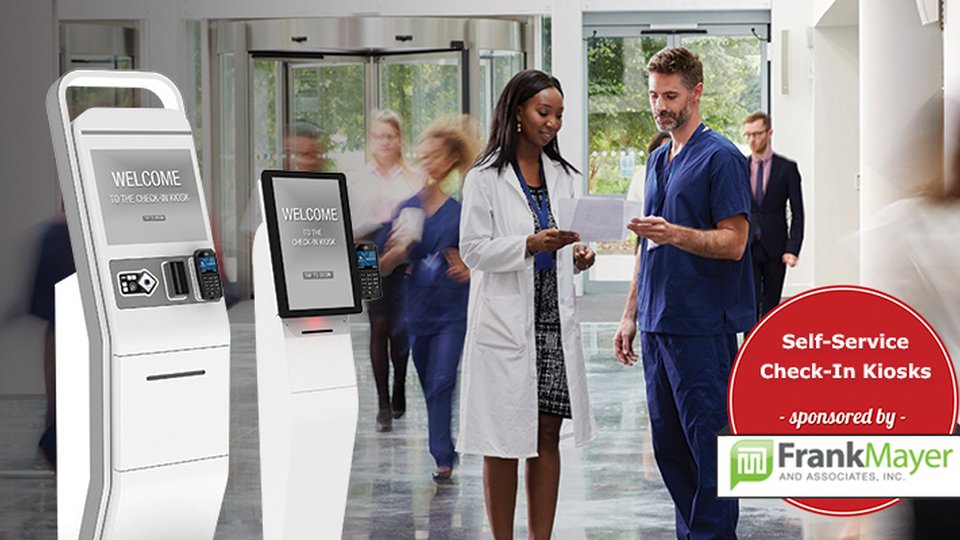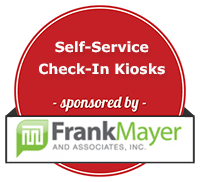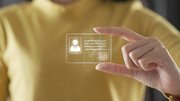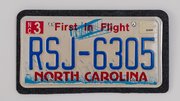Customer Experience
Self-check-in kiosks find expanding role in hospitals
Delegating more control over the check-in process to the patient can ensure the medical staff can focus on what’s most important – providing the best medical care.

October 26, 2020 by Elliot Maras — Editor, Kiosk Marketplace & Vending Times
When visitors check-in at a self-service kiosk, staff no longer risks exposure to germs from sick individuals. In addition, kiosks are easily disinfected. The Centers for Disease Control and Prevention has provided guidelines for cleaning and disinfecting kiosks.
Where airlines introduced self-check-in kiosks to consumers more than a decade ago, health care locations have been adding the technology at a rapid pace in recent years.
Baton Rouge General included four patient check-in kiosks at its recently opened Ascension Neighborhood Hospital which features an emergency room, in-patient care, a lab and radiology department. The hospital is testing the technology and may add it to its two existing full service hospitals, hospital spokesperson Meghan Parrish told Kiosk Marketplace.
"It gives people another option," Parrish said. "If there's a long line, people can check in at the kiosk. The real goal, especially for people on the primary care side, is that you can check in and go straight to your exam room without even having to stop at a desk."
Patients can also check-in using an app or asking a staff person.
"This is something we are piloting with this new hospital," Parrish said. "We were able to build it from the ground up. We could design it around the patient experience. Maybe we'll be able to implement the kiosks and the check-in process at the other facilities later."
Baton Rouge General modeled the clinic experience after the Virginia Mason Clinic in Seattle, which won the College of Healthcare Information Management Executives 2020 Digital Health Most Wired recognition for the ninth straight year.
The new clinic has what Parrish calls a "no waiting room" concept that allows people to check-in and go right to their exam room. "It's just a more streamlined way to get care," she said.
Kiosks help educate consumers
Parrish envisions a time when check-in apps will become more common, but in the meantime, she sees the kiosk as a way to acclimate consumers to self check-in technology. Patients will be encouraged to download the app while using the kiosk.
"It's almost a way to promote the app; people can see the [app] functionality without having to download it," she said. In addition to check-in, the kiosk offers a lot of information about hospital services.
Shawn Zimmerman, president and CEO, Zenig, a patient experience software provider. sees self-check-in expanding.
"We're continually getting more check-in engagement with our self-serve solutions," said Zimmerman. "If you've completed your patient intake and we have your information already, then it will automatically check you in and say 'please have a seat,' while notifying the staff that you're currently waiting."
Kiosks empower consumers
One reason for this is patients want to have more control over their information. In situations where the kiosk displays patient information, it gives them the chance to verify the information.
"The patients are more involved with their data because we're actually showing them the data, rather than having someone behind a desk say, 'okay, here's what I have on file, is this still correct?' With the kiosk, the patient can actually fix the spelling if there's a spelling issue," he said.
Patients do not have to touch the kiosk in order to use it, said Zimmerman. The check-in software can email the patient a QR code they can hold in front of the kiosk to check-in automatically. "You just hold the QR code and it immediately reads it," he said.
Innovation will continue
Zenig is currently developing an app that will allow a patient to scan a QR code displayed on the kiosk itself. "It will pop up as a link on their phone," he said. "In that case, they're actually utilizing the kiosk on their phone. The patient can still use the kiosk to make a payment. We've really accelerated that feature because of COVID."
"Making an investment in a kiosk is a good way to streamline that process," Zimmerman said. "They can sign their consent to treatment right there on the kiosk."
Self check-in kiosks are also helping to extend health care services to retail locations.
"In addition to health care organizations utilizing kiosks to enhance the experience in their own facilities, they are also using the kiosks in an omnichannel effort to include retail locations," said Edward Roberto, regional account director at Frank Mayer and Associates Inc. "These include pharmacies and small outpatient clinics."
Pandemic brings new urgency
The pandemic has called on the health care industry to enable consumers to have more say in making decisions about their health, according to the Deloitte 2020 Survey of U.S. Health Care Consumers.
Deloitte anticipates that as the crisis abates, consumers will continue to expect to use the conveniences they have become accustomed during this time.
One Deloitte recommendation to health care providers is to create more access points to improve health care. Delegating more control over the check-in process to the patient can ensure the medical staff can focus on what's most important – providing the best medical care.
Hence, the pandemic has served to catalyze innovative solutions to keep operations moving efficiently while ensuring safety. As communities emerge from the pandemic technologies such as check-in kiosks will be be a new consumer expectation.
"Emergent technology like healthcare kiosks will be especially important to care providers moving forward, helping to restructure patient check-in, keep staff protected from communicable diseases, and offer easy telehealth options to less critical cases," said Katie Kochelek, a point-of-purchase marketing professional at Frank Mayer and Associates.
About Elliot Maras
Elliot Maras is the editor of Kiosk Marketplace and Vending Times. He brings three decades covering unattended retail and commercial foodservice.
Included In This Story
Frank Mayer and Associates
Custom Kiosk Design | Manufacturer
Frank Mayer Kiosks and Displays specializes in large-scale rollouts of custom digital kiosks for enterprise and growth-oriented brands. With a relentless focus on premium design, customization, and end-to-end service, we manufacture self-service customer engagement solutions that expand market reach, boost sales, and enhance brand equity.

 ChatGPT
ChatGPT Grok
Grok Perplexity
Perplexity Claude
Claude









